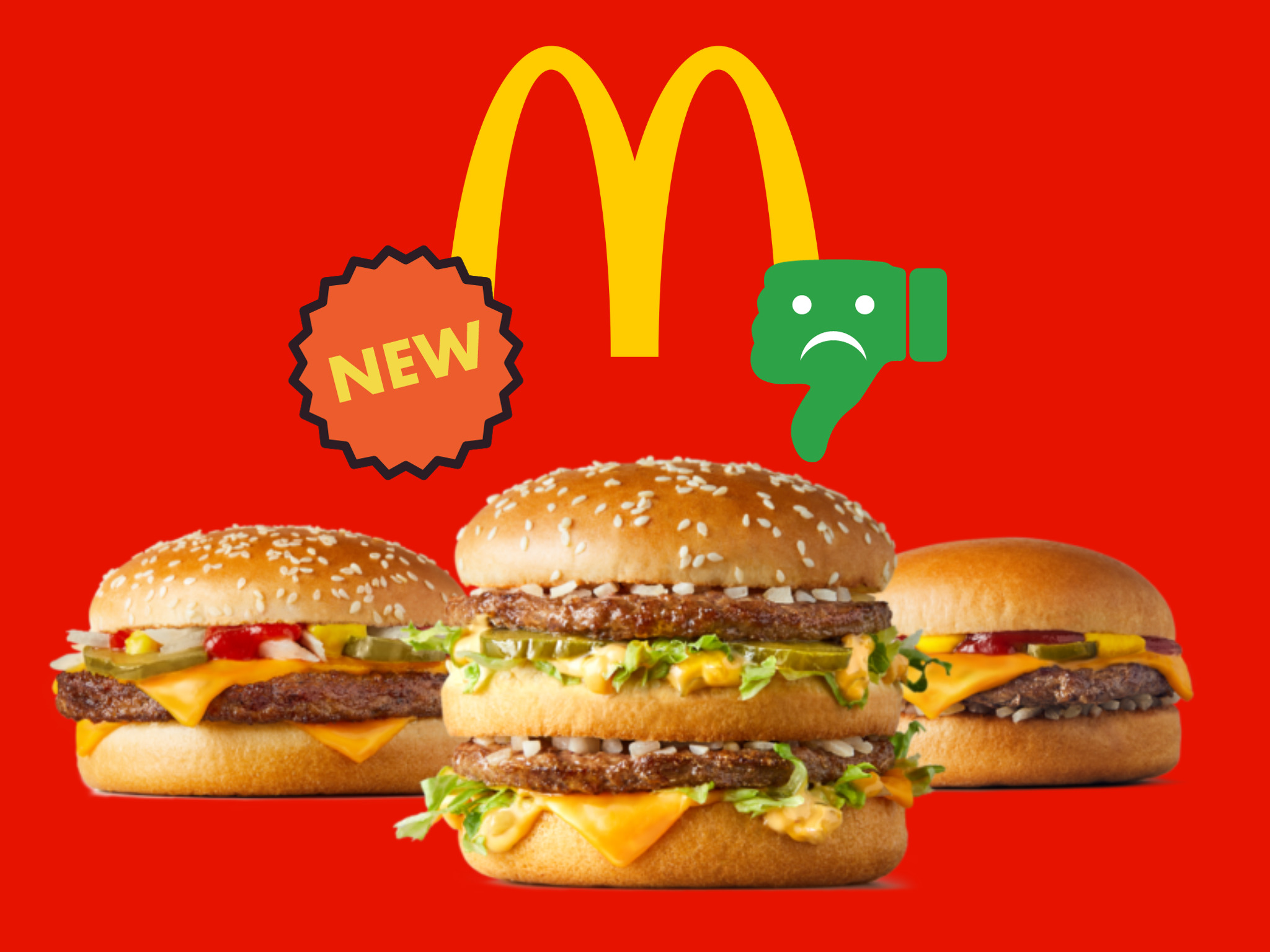Burger Wars Heat Up: Why McDonald’s is Losing to Plant-Based Rivals in Europe
7 Mins Read
Sustained high meat prices on both sides of the pond are changing the burger business – for the benefit of people and the planet. But McDonald’s may be too centralised to adapt quickly enough to the changing times.
The world’s largest burger restaurant chain, McDonald’s, has posted the biggest fall in global sales since 2020. It’s the second consecutive quarter of contraction since the height of the Covid crisis. International markets outside the US were hit particularly badly, with sales down by 2.1%, led by France and the UK.
One of the key triggers for such poor performance is meal prices. Customers walk in McDonald’s stores looking for tasty AND cheap meals served fast. That’s the unique selling proposition of fast food chains. The problem is that McDonald’s meals are not so cheap anymore.
In May, Joe Erlinger, president of McDonald’s USA, said in an open letter that the average price of McDonald’s menu items was up around 40% since 2019. Overall, the prices of McDonald’s food have risen an average of 100% in the last decade, which is about three times the general inflation rate, according to CPI Data.
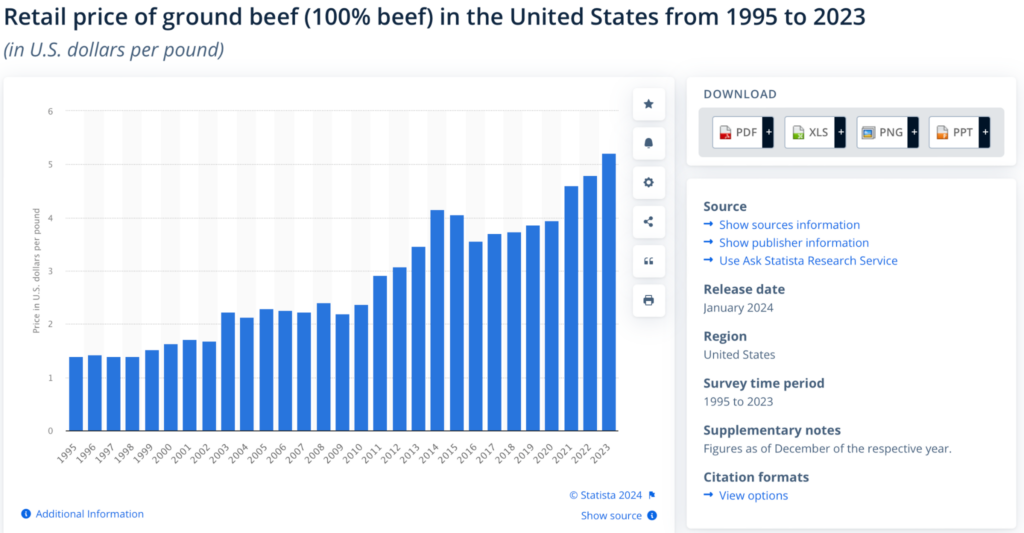
Food inflation is to be blamed. Certainly, food prices have increased across all food categories in the past five years, but quite significantly in the meat category. For instance, the price of ground beef in the US has increased by 35% since the pandemic.
The average EU meat price has also gone up since the pandemic: the cost of pork to consumers has increased by 42% since the pandemic; chicken 35%; and beef 30%. This is quite a blow for the operations of the Golden Arches brand because it is primarily an animal product business (beef, chicken, fish and dairy).
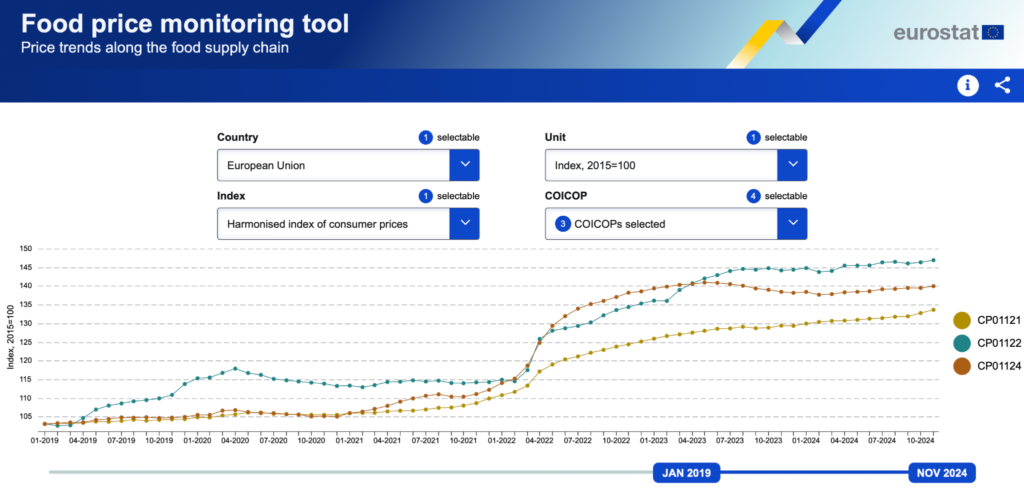
McDonald’s US reaction to plummeting sales has been to introduce a ‘$5 Meal Deal’ earlier in June for one month to attract lower-income customers back. It has been extended in the summer and again in November. Obviously, this move has squeezed profit margins. Even though the super cheap meal deal has helped increase sales in the US, net profits have fallen 3%.
McDonald’s outside the US is trying out a different approach. Around the same time McDonald’s US extended the $5 Meal Deal until December, McDonald’s France launched a plant-based alternative to its Chicken McNuggets. Crucially, the plant-based version is sold at the same price as the regular nuggets, giving customers a clear choice (no price premium attached), while keeping the profit margin higher than with regular chicken.
Why this could be a turning point for the vegan fast food sector
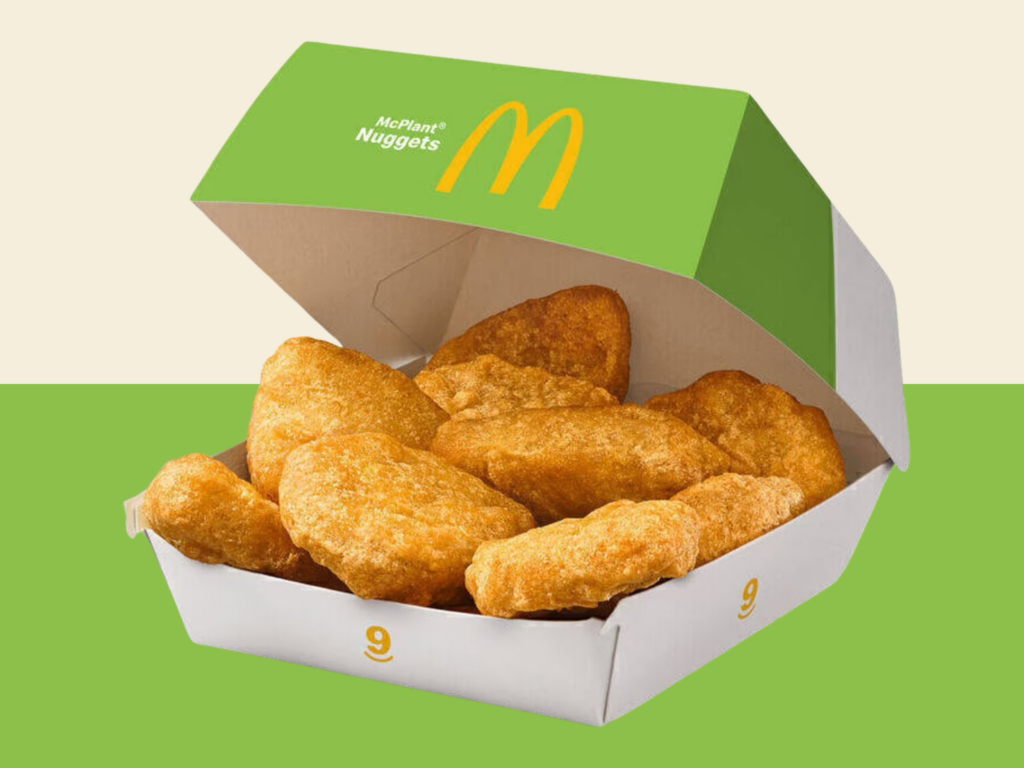
While the US is responding to the ever-increasing meat price pressure with super deals that are unsustainable in the medium run, McDonald’s in France is trying other avenues. This is important for three reasons.
First, the size of the market. France is the Golden Arches’ largest market outside the US. The fast food giant clearly sees a growing demand for plant-based products, especially in Europe. Indeed, McDonald’s France’s chief marketing officer made that very point in the media surrounding the launch.
Second, the product. Chicken McNuggets are a flagship product. After the failure of the launch of the McPlant burger in the US, it’s telling that the company is piloting the plant-based chicken nuggets in such a key market for the company.
Third, the marketing strategy. All the market research and the latest successes in fast food with Burger King and in retail with Lidl shows that selling plant-based alternatives at the same price as conventional meat products boosts sales significantly.
All that glitters is not gold
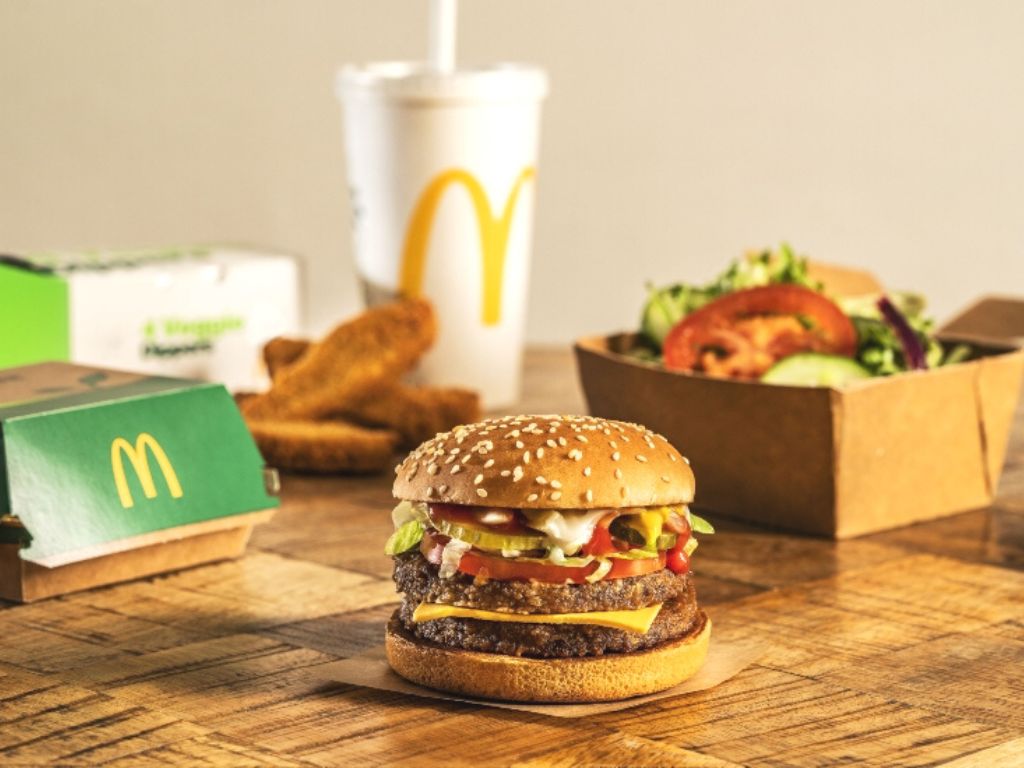
However, McDonald’s is a laggard in the sector. Rival Burger King is leading the plant-based race by a mile (or two), at least in Europe.
Burger King claims to have the largest plant-based range in the fast food sector in Germany, with a meatless version of almost every product since 2022. Their plant-based sales are beyond niche: One in five (20%) Whoppers sold in Germany are now plant-based, as well as one in four (25%) Long Chicken sandwiches. Similar sales performance has been registered in neighbouring Belgium and Austria.
The main driver of such success for the plant-based category is price parity. When Burger King Germany announced the full range of veggie options for each of their beef and chicken products, it did so by offering it at the same price as the regular animal products.
The bet paid off. And as meat prices have kept rising and the cost of veggie burgers have decreased thanks to economies of scale, in March Burger King Germany offered all their plant-based products at a lower price than meat.
German supermarkets are witnessing the same downward trend: plant-based meat alternatives cost less and less every year, and in Lidl, Germany’s largest discount supermarket, veggie products today are cheaper for consumers than meat.
Veggie burgers: good for people, animals and planet
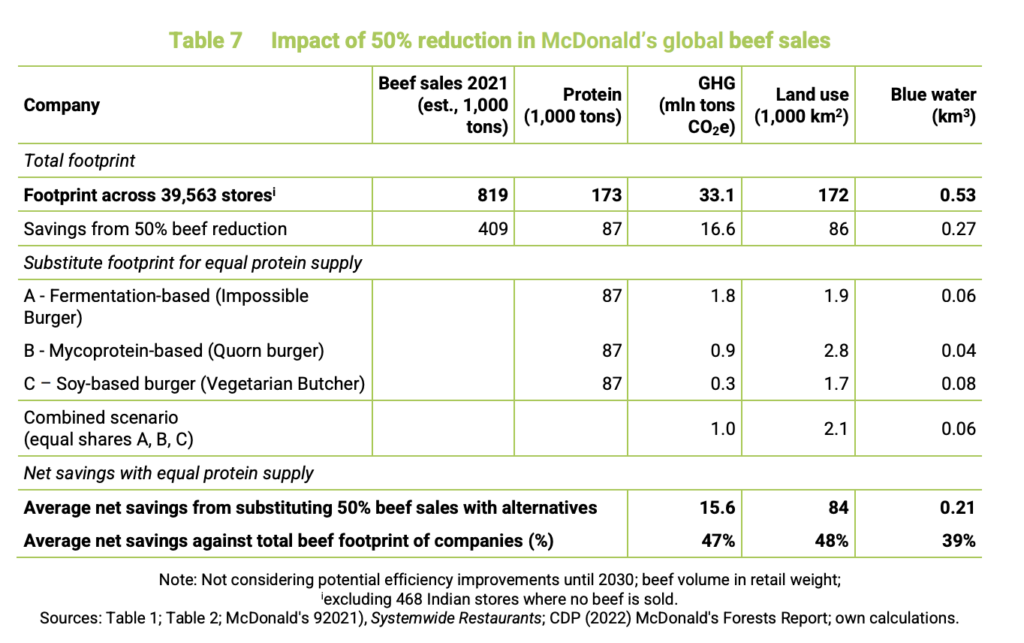
The benefits of McDonald’s diversifying their protein offering are not only monetary. Selling more veggie burgers and plant-based nuggets is also a great deal for the climate, nature and animals.
McDonald’s is the world’s biggest fast-food chain with over 40,000 restaurants in more than 100 countries. McDonald’s alone is responsible for around 1.5% of global beef consumption.
Analysis by research consultancy Profundo for Madre Brava shows that if McDonald’s replaced half of its beef burgers with plant-based patties globally, it could reduce greenhouse gas emissions by 15.6 million tonnes. This is equivalent to taking 12 million new petrol cars off EU roads. Moreover, the 50% plant-based meat replacement could free up an area of land the size of Austria (84,000 sq km). Last but not least, it could save as much fresh water as 84,000 Olympic-size swimming pools.
Rebalancing protein sales to offer as many beef burgers as veggie burgers is not only good for the health of our planet, but it is also for our own health and nutrition. According to the latest peer-reviewed multicriteria analysis, processed plant-based products such as veggie burgers offer substantial health and nutritional benefits compared to regular animal counterparts.
US vs EU?
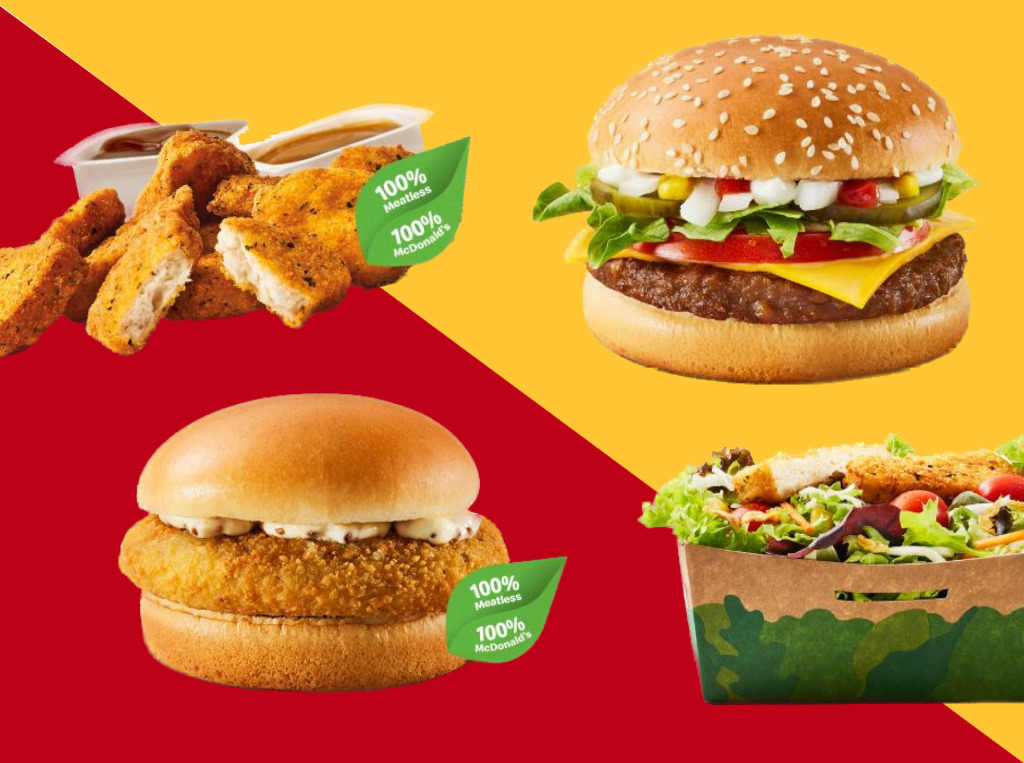
Sustained high meat prices are here to stay, while plant-based products get tastier and cheaper due to economies of scale. Unless the US and EU pour even more polluting subsidies into the industrial meat complex to artificially lower animal product prices, this is not going to change. Thus, the burger business is demanding a new strategy that can succeed in the new normal of high meat prices while addressing ESG challenges.
Two diverging business strategies seem to be competing within the Golden Arches global family. A US approach laser-focused on luring customers back with $5 meal deals, betting on regenerative agriculture and a shift from ‘beef to chicken’ to ‘solve’ their health and sustainability challenges.
And a European way, led by McDonald’s France, Germany and the Netherlands, that shows how plant-based patties and nuggets can help retain more and more flexitarian customers who want to cut down on meat and bring in new, vegetarian/vegan customers – all while increasing profit margins and slashing climate emissions.
Because the Golden Arches company is a top-down business where menu decisions and corporate strategies are made in Chicago and rolled out globally, it is quite easy to predict that the American approach will prevail for the time being.
But McDonald’s has always prospered through innovation. What is happening in Europe is a far more innovative way of approaching the new challenges facing the business than doubling down on a tired model which is proving increasingly unprofitable and unsustainable.
McDonald’s cannot afford to be left behind by more agile competitors. Its current problems have opened up a big opportunity. It should seize it.

